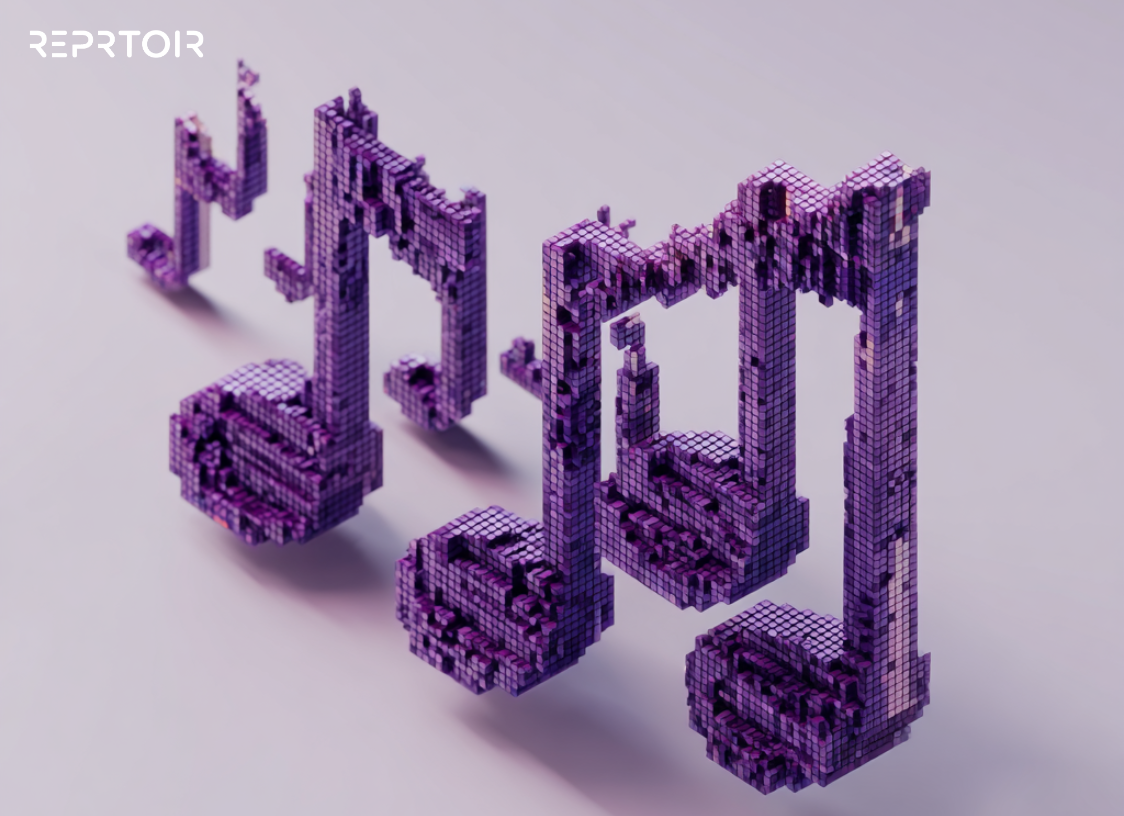Tough to choose from the many news we’ve heard this week! One thing’s for sure, the music industry key players have been working hard. From Luminate’s big acquisition to Universal’ feud against TikTok still going strong, let’s dive in.
#1. Luminate keeps going to collect all data on the music industry
You know us by now, when some major change happens in the field of data related to music, our ears immediately turn to it!
Luminate is definitely on a mission to revolutionize data unification in the entertainment sector and has acquired Quansic, a French music data company specializing in artist identification services. With Quansic's expertise in metadata harmonization across various music industry segments, including record labels, streaming platforms, and artist services, this acquisition further strengthens Luminate's position in enhancing data coherence within the music ecosystem.
The integration of Quansic's team will facilitate the seamless connection of their robust artist identification database, comprising over 2.5 million ISNIs and 200 million asset identifiers, into Luminate's groundbreaking data platform.
#2. Google takes another step in AI-assisted creativity
Let’s stay on tech for a little while and take a look at Google. When the Apple Vision Pro is making headlines years after they tried to release the Google glasses, the team at Goole has another focus in mind.
Google is stepping up its game in AI-driven music creation with the launch of MusicFX, the upgraded version of its previous tool MusicLM. MusicFX promises higher-quality and faster music generation, offering users the ability to create ditties up to 70 seconds in length and music loops. The new tool allows users to describe their desired song through text prompts, with added features like alternative descriptor suggestions and word cloud recommendations.
While MusicFX marks a significant advancement in AI music technology, questions linger regarding copyright implications and the authenticity of AI-generated tracks. Nevertheless, Google's continued investment in GenAI music tech signals a transformative shift in the music creation landscape.
#3. Napster’s playlists, now powered by OpenAI
Speaking of AI, here’s a feature we saw coming, and it’s Napster that officially initiated the game.
Napster is launching PlaylistGPT, a new feature powered by ChatGPT and DALL-E. The feature generates AI-curated playlists based on user prompts, offering subscribers personalized music experiences. While anyone can test it out, only Napster subscribers can save and listen to the full playlists, a strategic marketing move to attract new users.
If you’re wondering why we mention DALL-E as well, it contributes by creating unique artwork for each playlist, enhancing the visual appeal of the experience. With a rating system in place to refine playlist recommendations over time, Napster aims to offer increasingly tailored music discovery options. Despite some hiccups in genre recognition, PlaylistGPT still shows potential for AI-driven music curation, ensuring an engaging and diverse listening experience for users.
As for now, MusicFX has already created more than 10 million tracks, in a very short period of time. Safe to say that creators are getting curious!
#4. More music industry key players rally with Universal against TikTok
Moving on from pure tech, we told you last week about the major shift operated by Universal by taking off their catalog from TikTok. Now, many big names of the industry have spoken in support.
Universal Music Group's standoff with TikTok over licensing fees is gaining support from major players like Downtown, NMPA, and Primary Wave. Primary Wave, representing iconic artists, applauds UMG's stance against underpayment, emphasizing fair compensation for creators. Downtown's CEO calls for a recalibration of the music-TikTok partnership to ensure equitable compensation, echoing NMPA's concern over the platform's undervaluation of music creators. Merck Mercuriadis, now Chairman at Hipgnosis Song Management, asserts the need for platforms like TikTok to acknowledge music's value, endorsing UMG's efforts.
Industry heavyweights unite in advocating for fair treatment of music creators amidst evolving digital landscapes. But for now, only Universal managed to take actual action by removing their catalog.
#5. Some thoughts about the future structure of the music industry
To wrap up this Weekly Roundup, a few visions on the future came our way from one of the main visionaries for the music industry.
MIDiA Research goes through the possibilities of the evolving landscape of the music industry, highlighting the transition from today's LISTEN-focused ecosystem to a new, parallel PLAY-focused one. Mulligan identifies the limitations of streaming, including fragmentation of consumption and declining superstar prominence, paving the way for a shift towards PLAY platforms leveraging AI for end-to-end creation-to-consumption experiences.
In the end, this predicts the emergence of two lanes: LISTEN, akin to today's lean-back model, and PLAY, offering participatory experiences bypassing traditional DSP supply chains. PLAY being seen as a cultural playground, fostering expressive, ever-changing music unconstrained by traditional norms. While acknowledging licensing challenges, Mulligan emphasizes PLAY's potential to reshape both the business and culture of music, offering a dynamic future where everyone can actively participate in music creation.










